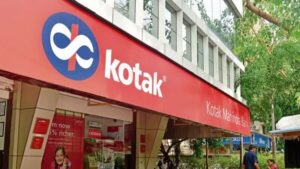Merger News: RBI Approves Merger of Two Banks – What It Means for Customers

Merger News: RBI Approves Merger of Two Banks – What It Means for Customers
In a significant development for the cooperative banking sector, the Reserve Bank of India (RBI) has approved the voluntary merger of New India Co-operative Bank Limited (NICBL) with Saraswat Co-operative Bank Limited, both based in Mumbai. This merger, which was proposed in July 2025, has now received the green light from the central bank and will officially come into effect on August 4, 2025.
The RBI’s decision is aimed at safeguarding depositor interests, ensuring operational continuity, and reinforcing trust in the cooperative banking framework, particularly after NICBL encountered serious governance challenges earlier this year.
The merger didn’t emerge out of expansion plans alone—it was prompted by a crisis. In February 2025, NICBL came under regulatory scrutiny following allegations of embezzlement involving ₹122 crore, reportedly linked to its senior management. The RBI responded by dissolving the bank’s board on February 14 and appointing an administrator to take over its operations for a period of one year.
By March 2025, NICBL had over ₹1,100 crore in total assets and operated 27 branches, 17 of which were located in Mumbai. The central bank had placed withdrawal restrictions to prevent further erosion of depositor confidence and preserve financial stability.
Saraswat Co-operative Bank, which is India’s largest urban co-operative bank, stepped in with a proposal to merge NICBL into its operations. Known for its robust financial standing and wide network, Saraswat Bank had a total business of ₹91,800 crore as of March 31, 2025, including ₹55,481 crore in deposits, ₹36,333 crore in loans, a capital adequacy ratio of 17.43%, and zero net NPAs for the third consecutive year.
With the RBI officially approving the merger on August 1, 2025, all NICBL branches will now function as part of the Saraswat Bank network from August 4 onward.
What Will Change for Customers?
For depositors and account holders of New India Co-operative Bank, this merger is expected to bring about several improvements without disrupting existing services. Here’s what customers can expect:
Uninterrupted Access to Funds: Withdrawal restrictions previously placed on NICBL customers—such as the ₹25,000 withdrawal cap—will be lifted post-merger.
Account Safety: Deposits, accrued interest, and balances will be fully retained, with no losses or haircuts imposed.
Improved Banking Services: With Saraswat Bank taking over, customers are likely to benefit from better digital infrastructure, more advanced banking technology, and a wider network of branches and ATMs.
Seamless Transition: Account holders will automatically become customers of Saraswat Bank, and branch-level operations will continue smoothly under the new branding and management.
Why This Merger Matters
This is more than just the joining of two banks—it’s a strategic recovery initiative. NICBL’s challenges posed a risk not just to its customers but also to the reputation of the co-operative banking ecosystem. With Saraswat Bank’s backing and a clean financial record, the merger offers a credible resolution, protecting customers while enabling operational revival.
It also marks another step by the RBI toward encouraging stronger institutions to absorb vulnerable ones—especially in sectors like urban co-operative banking, which often face governance challenges.












